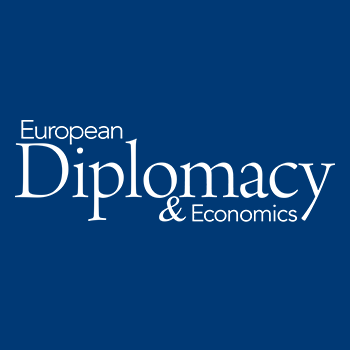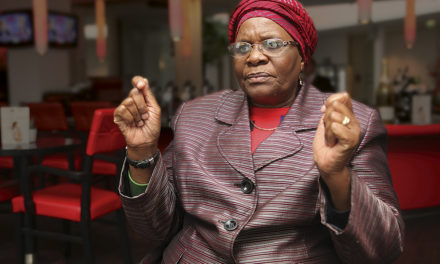
The Presidential Board meeting in early 2020.
Honorary Consuls working in Central Europe created a new cross-border organisation in Budapest in April 2020 under the name of Council of the Central European Consular Corps.
The honorary consuls’ work often requires them to see things from a broader, regional perspective, especially when it comes to representing the interests of countries further afield in a region. These cases almost automatically necessitate consultation and multi-level coordination. If Central European honorary consuls know each other well, results can be obtained more quickly regarding tasks requiring coordination. Such is the thinking behind the successfully implemented idea.
With this in mind, Mr. Erik Molnár, Honorary Consul of Namibia to Hungary launched an initiative to facilitate collaboration among Hungarian-speaking Honorary Consuls working in Central European countries. However, they set additional objectives and addressed further issues while making progress towards the establishment of the organisation, and by the time the Council of the Central European Consular Corps was created, it became clear that the organisation would have an important mission and, more than that, could provide decisive support to South Eastern European countries on the accession waiting list to join the European Union.
Members of the CCECC Presidential Board
Erik Molnár, President
Dr. Attila Koósz, Deputy President
Dr. Slaven Grbic, Deputy President
Dr. Miklós Udvarhelyi, Deputy President
Rezső Sárdi, Vice President
Josef Gal, Vice President
Ádám Bölcs, Vice President
Eugen Horváth, Vice President
Dr. Gergely Pataki, Vice President
Péter Antal Vándor, Vice President
József Mészáros, Vice President
and Erik Molnár Jr. as Secretary General

József Mészáros
Vice President

Erik Molnár Jr.
Secretary General

Joint action by the Honorary Consuls will contribute to preserving European cultural values, traditions and common roots and support joint economic aspirations through academic/scientific and cultural cooperation and dialogue
Erik Molnár, the President of the Council of the Central European Consular Corps said at its inaugural meeting.
The President further stated that
regional cooperation would also play a very important role in the recovery from the socio-economic shock caused by the coronavirus pandemic and expressed the hope that all members of the Council would make their best endeavours to help to advance regional cooperation.
Although its first event in Budapest was cancelled because of the coronavirus, the members of the Council kept in touch with each other via regular videoconferences during quarantine and worked throughout that period to prepare for the post-pandemic period.
Furthermore, the Council aims to coordinate arts and cultural events, to hold consultations at the planning stage and to implement joint programmes in every sector of cooperation, while asserting economic interests. As Erik Molnár, the President of the Council of the Central European Consular Corps (CCECC) pointed out, for instance, science, education, research, agriculture, sports, arts, tourism, sending visiting professors, organising training courses and conferences will likely play an even more important and prominent role in reopening and resuming life than they did before the outbreak of the coronavirus.
Related Articles
Related
Redefining El Salvador – Open talk with Amb. Julia Emma Villatoro Tario
Julia Emma Villatoro Tario, Ambassador of El Salvador to Austria, has had a distinguished diplomatic career spanning Vienna, Brussels, and Luxembourg. Dedicated to advancing El Salvador’s global standing, she promotes education and security initiatives, including a scholarship program with Hungary. Committed to diplomacy, she works to strengthen international partnerships and opportunities for her country.
Same challenges for a challenged partnership: the EU, the United States and the Western Balkans
The shifting transatlantic alliance, driven by the Trump administration’s policies, is reshaping political dynamics in the Western Balkans. As the EU and U.S. drift apart, EU enlargement remains uncertain, raising concerns over regional stability. Domestic political crises, external pressures, and geopolitical tensions further complicate prospects for democratic reforms and European integration.
The 77th anniversary of the United Nations
24 October marks United Nations Day, the anniversary of the day in 1945 when the UN Charter entered into force. In the past 77 years, the UN has worked to maintain international peace and security, promote social progress, improve living standards and support human rights. There is no other global organization with the legitimacy, convening power and normative impact of the United Nations. No other global organization gives hope to so many people for a better world and can deliver the future we want.



















